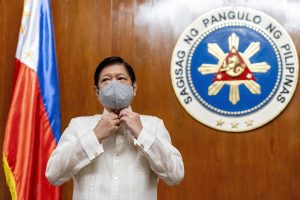October 8 marks Philippine President Ferdinand Marcos Jr.’s 100th day in power. The son of former dictator Ferdinand Marcos Sr., the younger Marcos’ election in May 2022 capped off a stunning comeback by a political family that had been forced into exile by popular protests in 1986, known as the EDSA Revolution. Marcos Jr.’s election also sparked fears among human rights activists that the Marcos family’s return to power could mean a return to the abuses of the former Martial Law period.
Over three months into the new president’s term, have these fears become reality? The Diplomat’s Shannon Tiezzi interviewed Ronald Mendoza, professor and dean at the Ateneo School of Government in the Philippines, to get a sense of the Marcos administration’s governance style and the future of Philippine democracy.
As the Marcos Jr. administration marks its first 100 days in power, has there been more continuity with or change from the previous Duterte administration?
Due to his lack of engagement in the candidates’ debates, unsurprisingly there was some degree of uncertainty and market anxiety when news broke out of the then-impending Marcos victory. At least on the economic front, the appointment of the economic team helped signal that there would likely be strong credibility and continuity in the economic management and reforms pursued successfully by the post-EDSA presidents.
In addition, the appointment of well known technocrats and reform advocates (in the Department of Energy, Department of Migrant Workers, Department of Environment and Natural Resources, Department of Health) also sent a strong signal that these additional agencies would more likely engage with non-government partners and promote evidence-based policymaking. While some politicians and allies were still appointed by the new administration, it appears that key agencies were given to more credible experts.
Hence overall my sense is that the appointments have been reassuring and trust-building. At this point it appears that the Marcos administration compares more favorably when juxtaposed against the previous administration when it comes to tapping strong and well-known and regarded expertise in the cabinet.

































